We all know how challenging it can be to receive a negative review, but remember that it's also an opportunity for growth and improvement. A well-crafted letter can turn a dissatisfied customer into a loyal advocate, showcasing your commitment to excellent service. In this article, we'll explore effective letter templates that not only address concerns but also demonstrate your willingness to listen. Ready to transform that feedback into a positive outcome? Let's dive in!

Acknowledgement of Feedback
Acknowledging negative feedback plays a crucial role in maintaining customer relationships and improving business practices. Businesses often receive reviews reflecting customer dissatisfaction, which should be addressed promptly and thoughtfully. Customers appreciate when their concerns are heard, particularly when they involve specific experiences, such as poor service or product quality. Implementing changes based on feedback can enhance the overall customer experience, fostering loyalty among patrons. The response should express gratitude for the review, outline steps taken to rectify issues, and invite the reviewer to discuss further. This professional approach ensures customers feel valued and encourages transparency within the business community.
Apology and Empathy
A negative review can significantly impact a business's reputation and customer relations. Addressing concerns promptly can foster trust and demonstrate commitment to quality service. Acknowledgment of the customer's experience, such as a recent visit on October 2, 2023, lays the groundwork for an effective response. Expressing heartfelt empathy regarding their dissatisfaction creates an emotional connection, essential in customer service. Offering solutions, such as a refund or a complimentary service, can help rectify the situation. A commitment to improving based on customer feedback can reassure patrons, underscoring that their opinions matter and that the establishment values customer satisfaction highly.
Address Specific Concerns
Negative reviews can significantly impact a business's reputation, especially on online platforms like Yelp or Google. Addressing specific concerns from customers demonstrates attention to detail and commitment to improvement. For instance, if a customer mentions poor service at a restaurant in Seattle's Pike Place Market, it's crucial to acknowledge their experience, apologize sincerely, and offer context about any staffing challenges during peak hours. Highlighting any changes or training implemented since their visit can show that their feedback is valued and leads to actionable steps. By addressing specific issues, businesses can not only mend relationships with dissatisfied customers but also create a positive impression for potential clients considering their services.
Offer Solutions or Compensation
Negative reviews often highlight customer dissatisfaction, especially within industries like hospitality or retail. Acknowledging feedback can be crucial for improving service standards, such as a hotel's front desk efficiency or a restaurant's food quality. Offering solutions, like complimentary upgrades or discounts, demonstrates commitment to customer satisfaction. For instance, a 20% discount on a future visit can encourage guests to return. Providing clear contact information, such as an email address or phone number, allows customers to discuss their concerns directly. Transparency in these interactions helps build trust between the business and the customer.
Commitment to Improvement
Businesses often face negative reviews that highlight areas for improvement. Responding to such feedback involves acknowledging the concerns raised by customers while demonstrating a commitment to enhance services or products. For example, a restaurant might receive a critique about slow service or cold food. The management could reply by expressing gratitude for the feedback, outlining specific actions being taken, such as additional training for staff or changes to kitchen procedures for improved food temperature. Emphasizing a dedication to customer satisfaction can help rebuild trust and encourage patrons to revisit. Addressing the review personally, such as referencing the date of the visit or the dish ordered, adds a personal touch that shows genuine concern for the customer's experience. Engaging with customers through transparent communication can bolster reputation and foster loyalty.
Letter Template For Response To Negative Review Samples
Letter template of clarification regarding misunderstandings in negative review
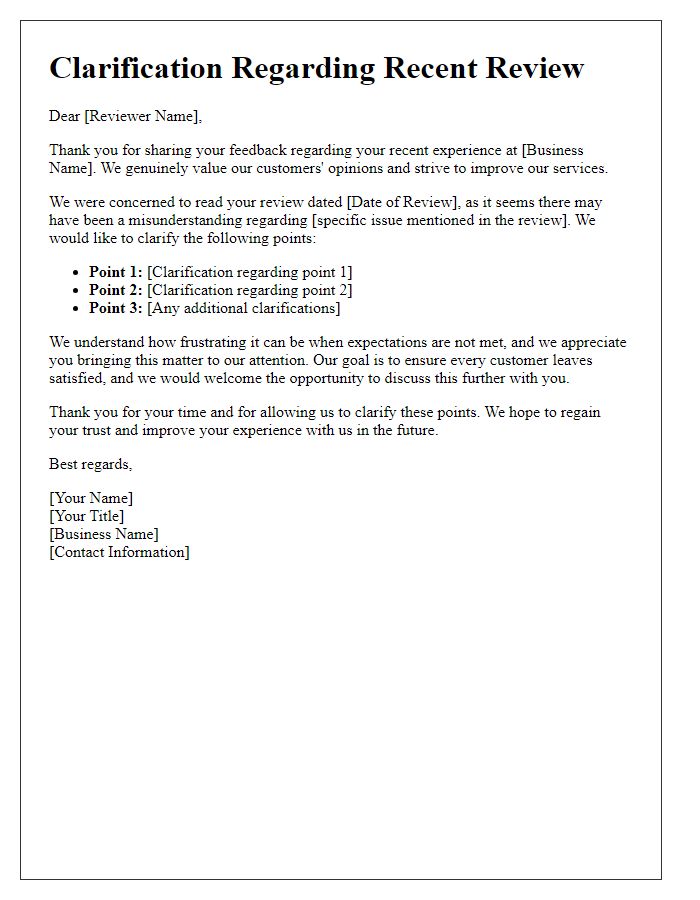
Letter template of gratitude for constructive criticism in negative review
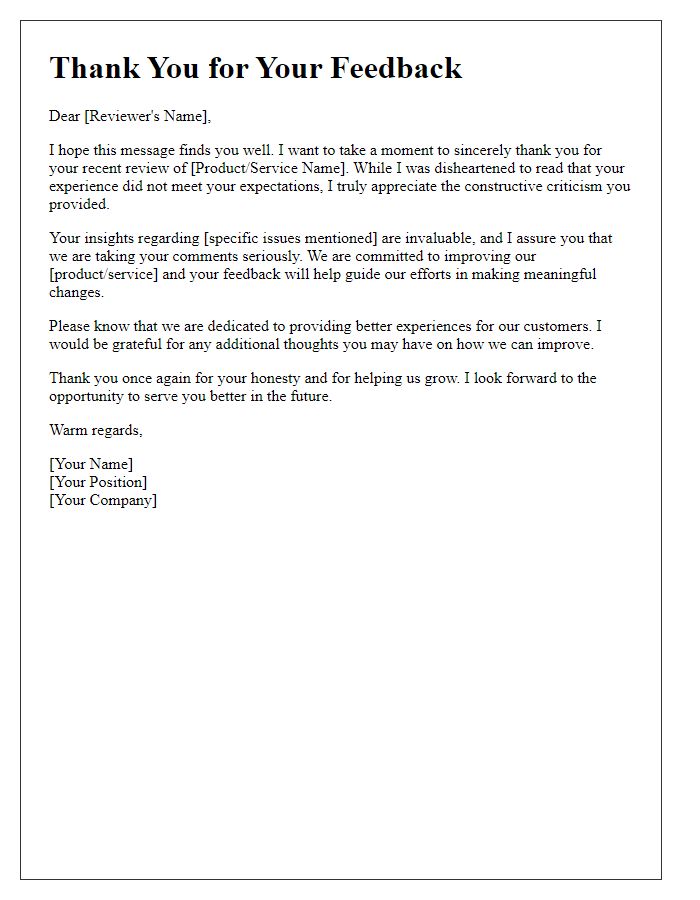
Letter template of reiterating commitment to quality after negative review
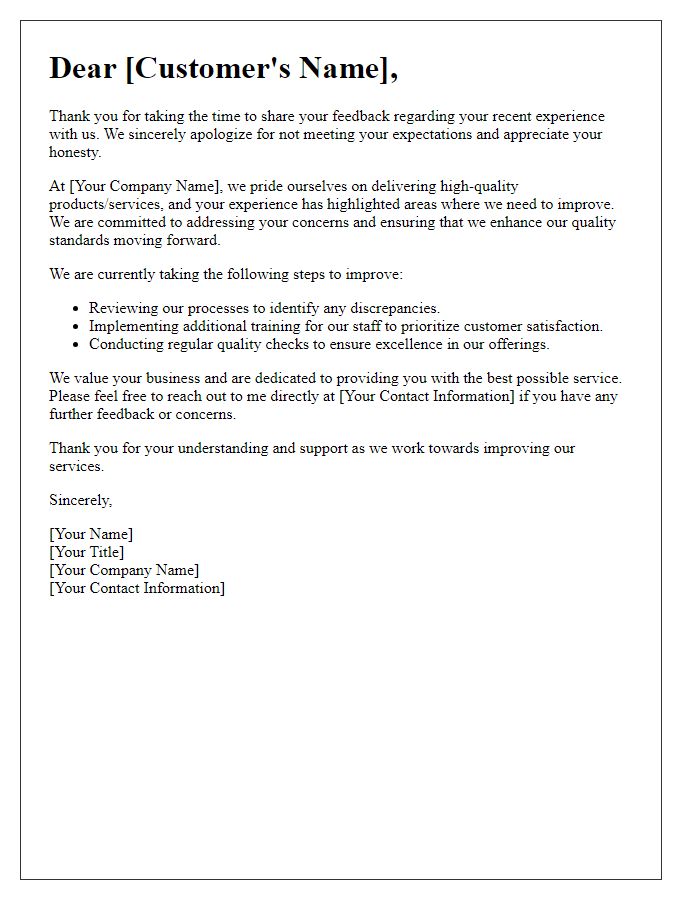
Letter template of inviting the reviewer to discuss in-person after negative feedback
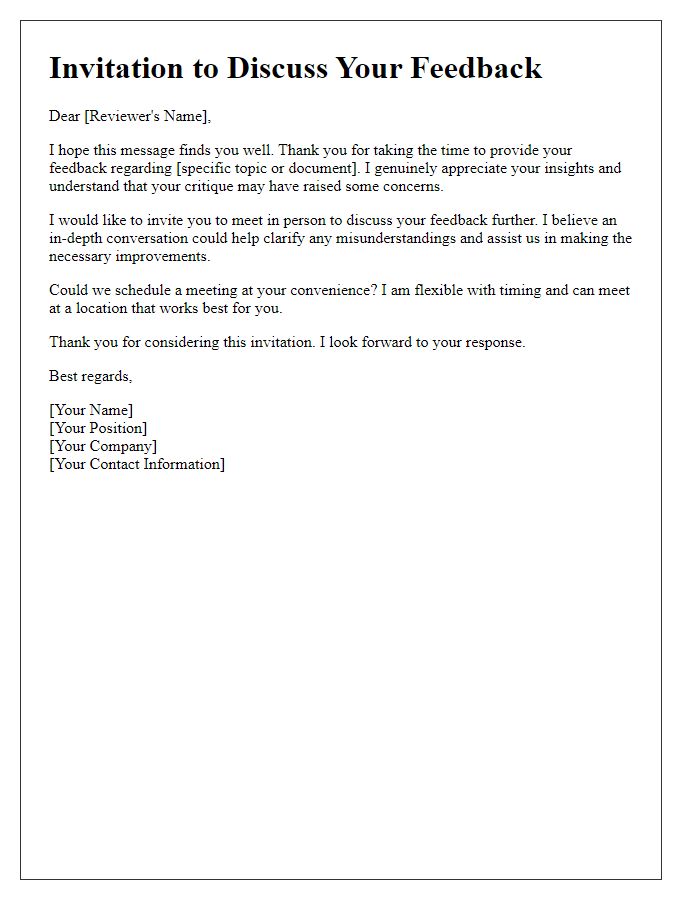

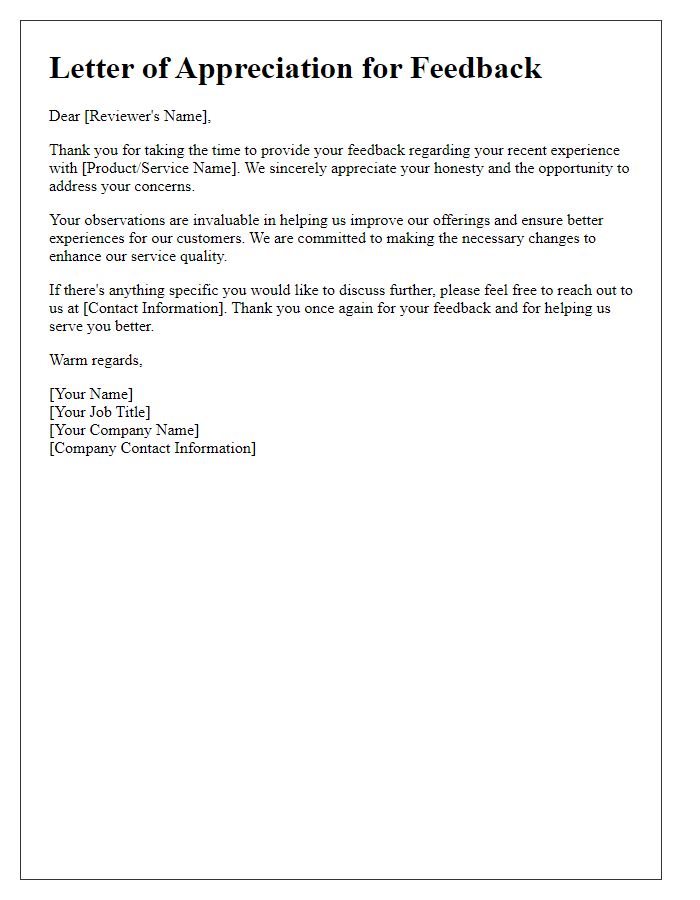
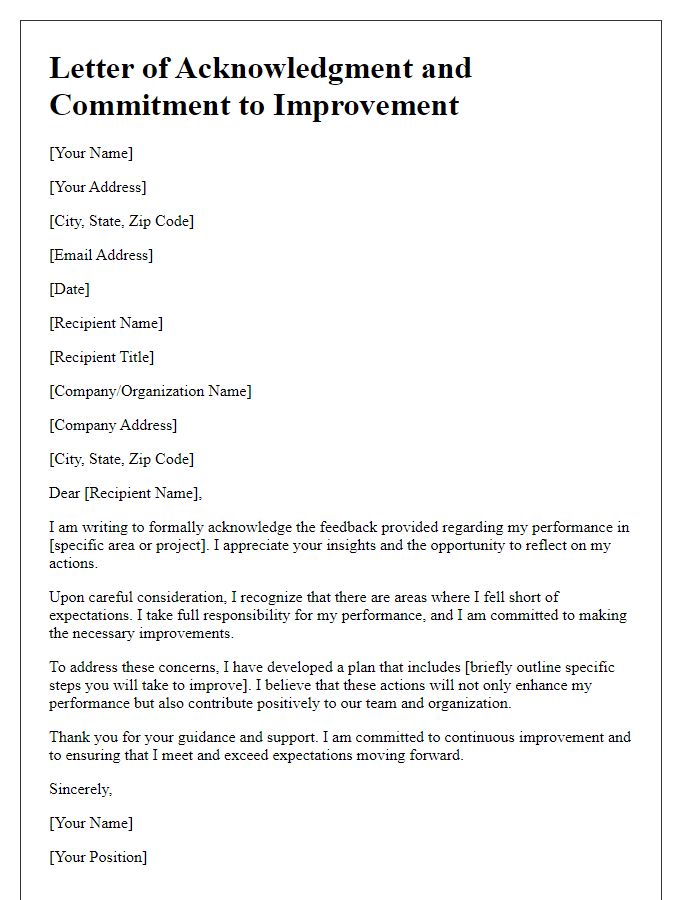
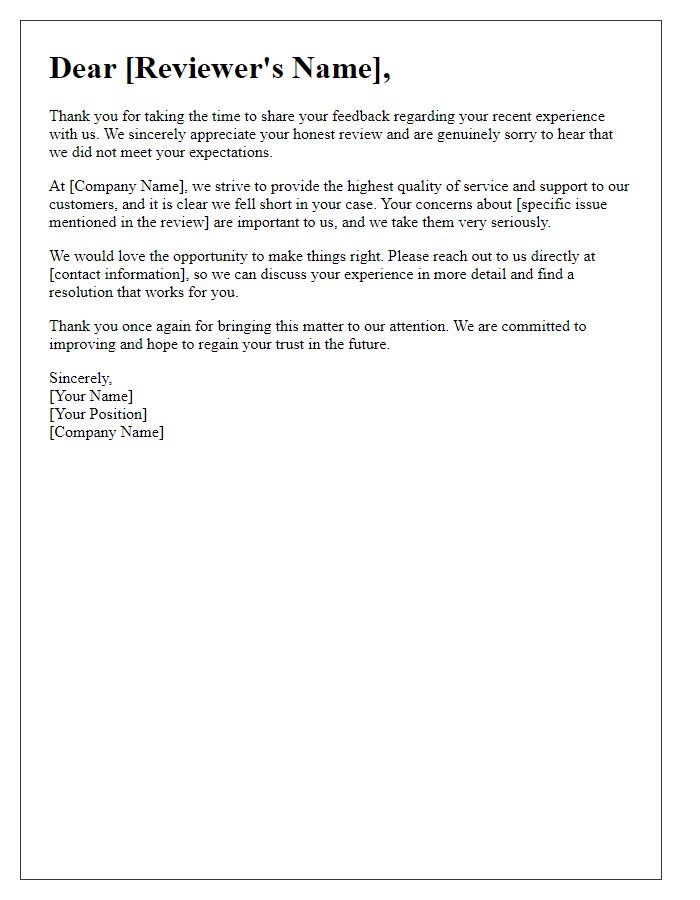
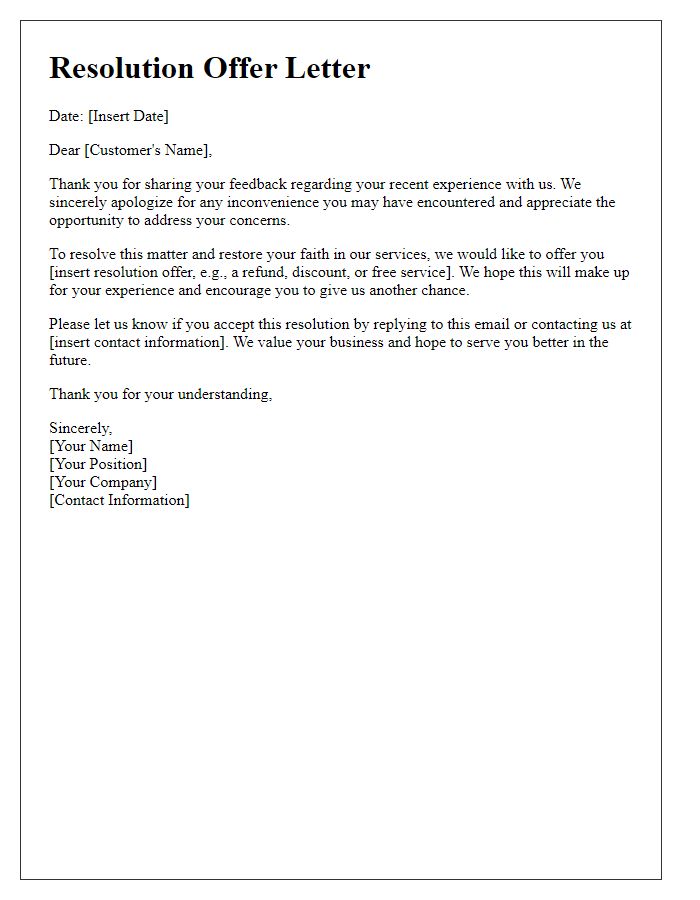
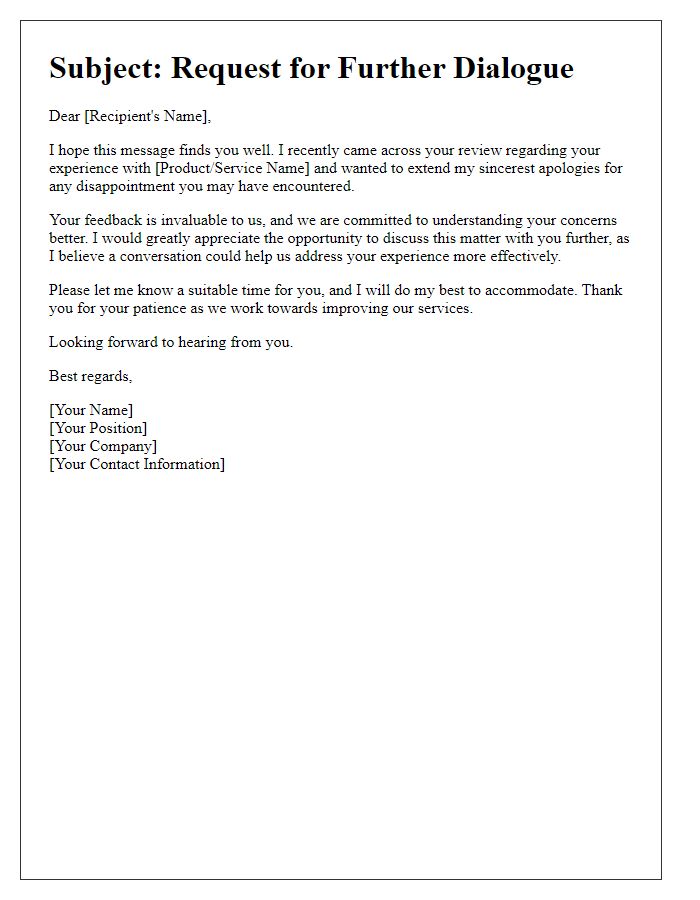
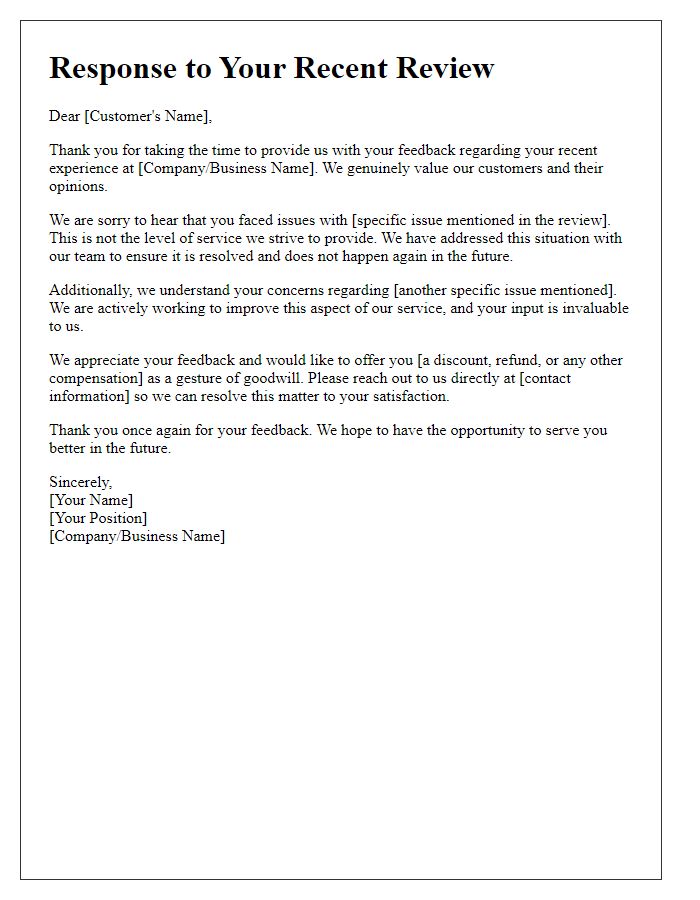


Comments